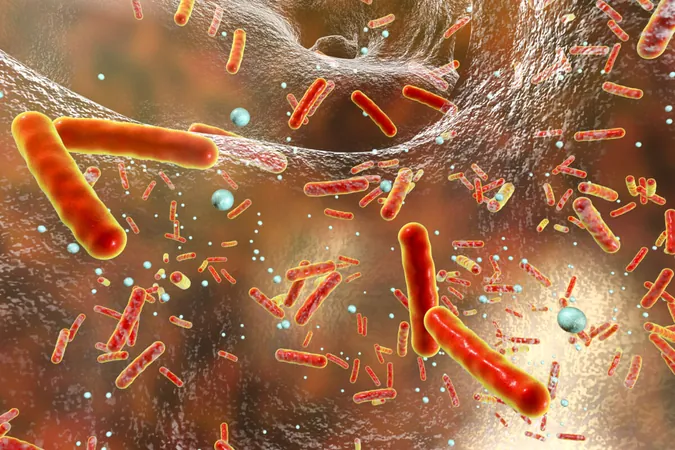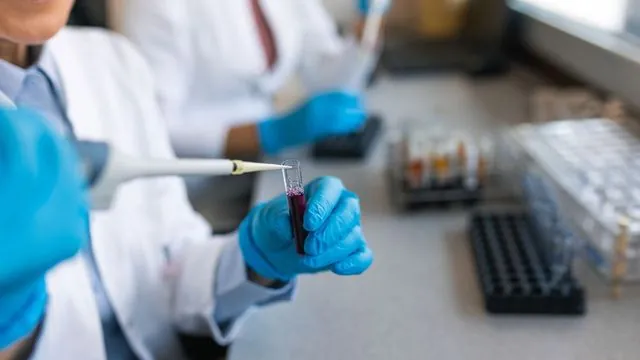
Revolutionary Discovery Reveals the 'Achilles Heel' of Antibiotic-Resistant Bacteria!
2024-11-15
Author: Ming
Unveiling the Mechanism
The research team centered their investigation on magnesium ions (Mg²⁺), which are vital for maintaining ribosome stability and ensuring efficient cellular energy management. Through a combination of rigorous laboratory experiments, computational modeling, and bioluminescence assays, they examined bacterial strains with and without the ribosome mutation. The experiment varied magnesium levels and their exposure to antibiotics to observe differences in performance and resilience.
Key Findings
What they discovered was remarkable: while the ribosome mutation (identified as L22*) conferred resistance to antibiotics, it came at the expense of the bacteria's ability to survive under low magnesium conditions. The mutated bacteria were found to overconsume magnesium, compromising other essential processes like ATP production (the energy currency of cells). This led to an unexpected vulnerability: in magnesium-poor environments, these resistant bacteria struggled to thrive. Conversely, when magnesium levels were ample, the mutated strains managed to withstand antibiotic treatment.
Implications for Public Health
This research spotlights a tantalizing trade-off: the very mutation that enables antibiotic resistance simultaneously increases dependency on magnesium. This insight opens up new avenues for controlling antibiotic-resistant infections. By manipulating magnesium availability, it may be possible to diminish the resilience of these bacteria, allowing traditional antibiotics to regain their efficacy.
Limitations and Future Directions
While the study provides exciting insights, it’s important to recognize its limitations. The experiments were conducted under controlled lab conditions that do not fully replicate the complexities of real-world environments. The exploration was also confined to a single ribosome mutation in one species, suggesting that broader applications need further investigation.
Conclusion: A Call for Action
This breakthrough not only enhances our understanding of bacterial resistance but also presents a strategic opportunity to combat one of the most pressing threats in modern medicine. As antibiotic-resistant infections continue to surge, innovative approaches like this could prove pivotal in safeguarding public health and preserving the effectiveness of our existing antibiotic arsenal.
Stay tuned as this story develops, and get ready to witness the potential transformations in the fight against antibiotic-resistant bacteria!




 Brasil (PT)
Brasil (PT)
 Canada (EN)
Canada (EN)
 Chile (ES)
Chile (ES)
 Česko (CS)
Česko (CS)
 대한민국 (KO)
대한민국 (KO)
 España (ES)
España (ES)
 France (FR)
France (FR)
 Hong Kong (EN)
Hong Kong (EN)
 Italia (IT)
Italia (IT)
 日本 (JA)
日本 (JA)
 Magyarország (HU)
Magyarország (HU)
 Norge (NO)
Norge (NO)
 Polska (PL)
Polska (PL)
 Schweiz (DE)
Schweiz (DE)
 Singapore (EN)
Singapore (EN)
 Sverige (SV)
Sverige (SV)
 Suomi (FI)
Suomi (FI)
 Türkiye (TR)
Türkiye (TR)
 الإمارات العربية المتحدة (AR)
الإمارات العربية المتحدة (AR)